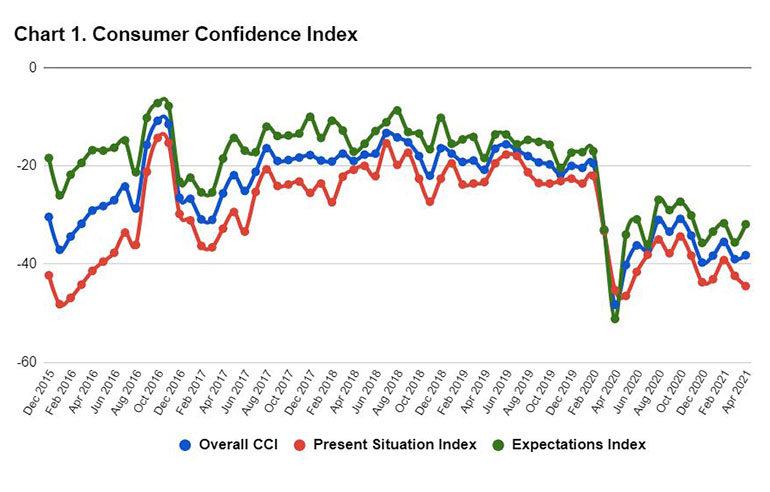Modest increase in confidence – Consumer confidence improved by a slight 0.8 percentage points in April (from -39.0 in March to -38.2 in April). Unlike in several of the previous consecutive months, however, the Present Situation Index and the Expectations Index did not move in tandem: while there are higher hopes for the future, perceptions of the present have deteriorated (see Chart 1).
What happened? A closer look at the data reveals that the fall in Tbilisi’s confidence contrasted with an increase in the rest of Georgia, which more than outweighed the pessimism of the capital city (see Chart 2). But the reason for this is not immediately obvious. The week following Orthodox Easter on May 4-11 has been declared a public holiday. During Easter, people usually go to the countryside to visit their families and, this year, the holidays were extended to slow the spread of COVID-19 (especially from increased post-Easter travel). It is therefore possible that people in the countryside became optimistic as economic activity increased more than usual.
Cautious optimism for the future – Both Tbilisi and the rest of Georgia appear to be more optimistic about the future, even though they have divergent feelings about the present; possibly resulting from an accelerated vaccine rollout (see Chart 3 and Chart 4). We also see that the sentiments of Tbilisians on the present and the future now coincide. If we make an analogy to the financial world, this suggests that one should not expect much movement in the short-term. But for the rest of Georgia, is the index for the future higher with some improvement in sight?











